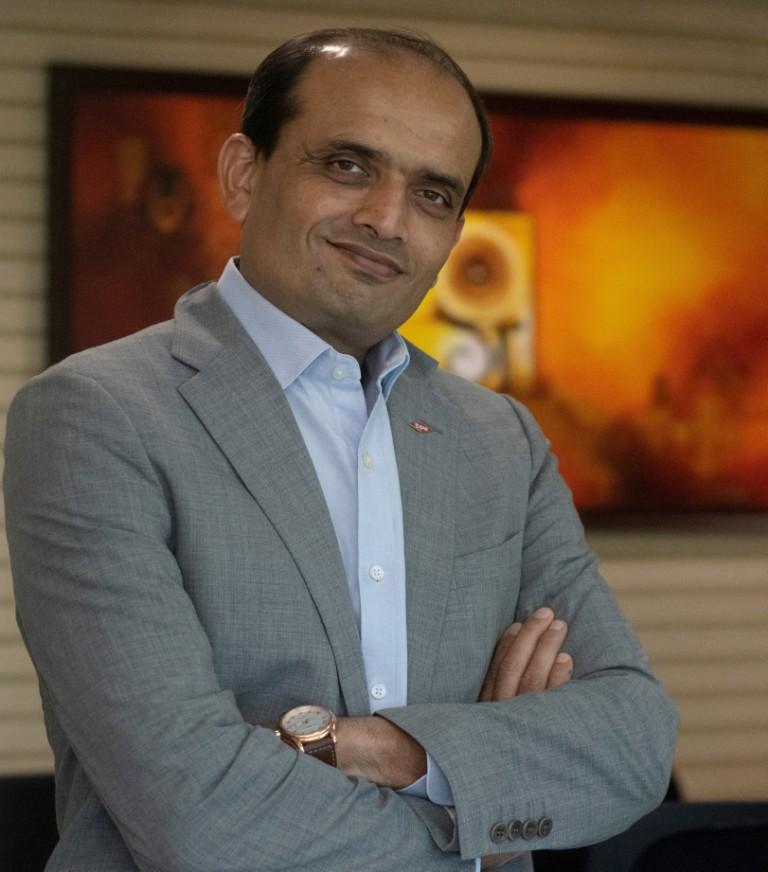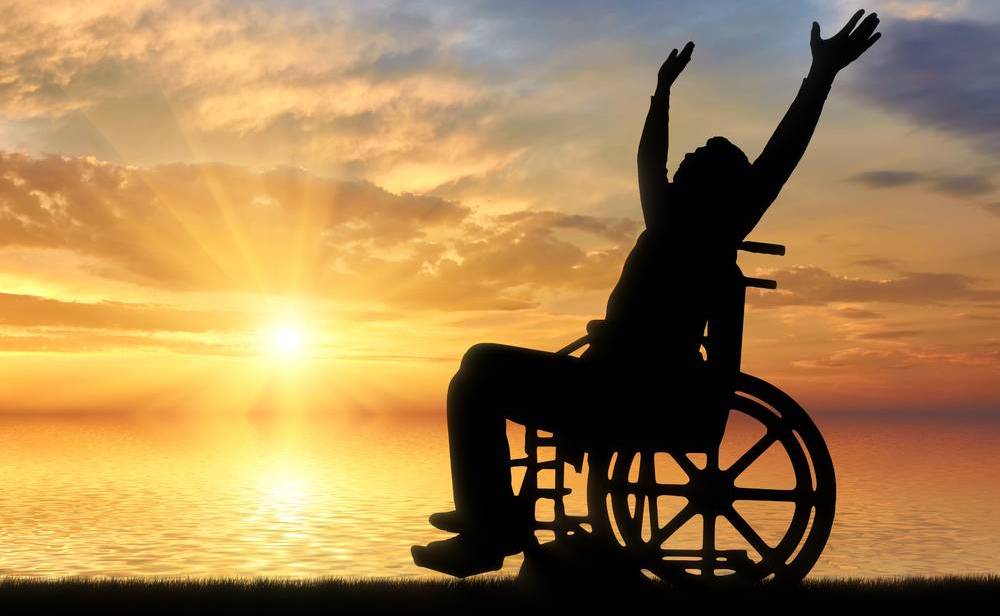 In a world where perspectives shape reality, the lens through which we view disability often requires profound recalibration. Mr. Sudhir Shenoy, Senior Vice President at EQUATE Petrochemical Company and Partner at Social Venture Partners India, presents a compelling narrative in his article, "It's Time We See the World Differently." The piece serves as a thought-provoking call to action, urging society to transcend preconceived notions and embrace a new outlook on Persons with Disabilities (PwDs).
In a world where perspectives shape reality, the lens through which we view disability often requires profound recalibration. Mr. Sudhir Shenoy, Senior Vice President at EQUATE Petrochemical Company and Partner at Social Venture Partners India, presents a compelling narrative in his article, "It's Time We See the World Differently." The piece serves as a thought-provoking call to action, urging society to transcend preconceived notions and embrace a new outlook on Persons with Disabilities (PwDs).
In resonance with this year’s International Day of Persons with Disabilities (IDPD) theme on December 3rd, Mr. Shenoy's article not only provides a perspective on the necessity for a shift in how we perceive and engage with Persons with Disabilities (PwDs) but also highlights the timely relevance of the conversation.
With over 33 years of experience in the chemical industry, Mr. Shenoy's dedication extends beyond corporate realms. He is a passionate advocate for Diversity, Equity, and Inclusion, particularly championing Disability inclusion. His commitment is not merely professional; it's personal. Mr. Shenoy's philanthropic initiatives, including partnering with Social Venture Partners India and fundraising for causes like building homes for widows of farmers, showcase a deep sense of responsibility toward creating a more inclusive world. Additionally, he is the founder of Karmann, a Mumbai-based project committed to building self-sufficient and socially healthy communities of persons with disabilities.
In his article, Mr. Shenoy delves into the pervasive issue of "ableist apartheid," shedding light on the unintentional segregation faced by PwDs. He challenges the incomplete narrative that often portrays individuals with disabilities as objects of sympathy, emphasizing the need for a collective effort to dismantle unconscious biases. Beyond highlighting the challenges, he provides a roadmap for societal change, advocating for legislative support, technological empowerment, and corporate collaboration to create a more inclusive landscape.
Mr. Shenoy's perspective is not just a commentary on the hurdles faced by PwDs but a compelling invitation to introspect, challenge ingrained biases, and actively contribute to fostering a society where everyone can thrive, irrespective of abilities.
Explore this transformative perspective on disability inclusion and find the roadmap to a more inclusive society in the article below:
It's not what you look at that matters, it's what you see - Henry David Thoreau, 19th century philosopher
In our ever-evolving world, one timeless truth remains: when you change the way you see things, the things you see change. This fundamental perspective sets the stage for our exploration of the complex and often misunderstood realm of disability.
Encountering individuals with disabilities, our immediate reactions often veer towards pity or sympathy. These responses, though seemingly well-intentioned, have a profound impact. They mold our perception, shaping these individuals as objects evoking pity rather than subjects with the potential to contribute to society.
The danger of a single narrative—that a person with a disability is merely an object of sympathy—is that it's incomplete and one-dimensional, focusing on differences rather than similarities, denying them a life of dignity.
Consider the staggering reality —15% of the population in developing countries like India grapple with disabilities daily. Yet they remain largely excluded from our schools, workplaces and public spaces - the largest invisible minority.
The issue runs deeper than perception; it's ingrained in a system unintentionally segregating Persons with Disabilities (PwDs)—a phenomenon we might term “ableist apartheid”.
Despite the rhetoric of inclusion and providing everyone a seat at the table, the sad truth is that, often, they struggle just to get through the doors.
But inclusion is not merely about celebrating exceptional individuals like Stephen Hawking or our very own Sheetal Devi, the world's first armless female archer to win a major para championship. The narrative should extend to countless unsung champions who surmount societal barriers, leading vibrant, productive lives, and contribute significantly to the cause of disability inclusion.
Recognizing our unconscious biases is crucial in breaking down these barriers. Dismantling ableism is imperative, and it's a collective responsibility. Governments, corporates, leaders and philanthropists must play a crucial role in changing the narrative.
But how?
It’s not about token hiring or adding a few ramps or even just about CSR funding. The first step is a commitment to truly engage in greater awareness of the deep-rooted unconscious biases that we all inherently carry.
There is so little that has been done over generations for this community, that there is a veritable feast of low hanging fruit that can be harvested to change many lives with modest interventions.
Enactment and enforcement of legislation for giving the same rights and privileges to PwDs be it for accessibility standards, affirmative action policies, inclusive education models, access to public transport, healthcare and insurance, etc. — governments across the country can make a huge difference to the landscape quickly.
New age technology offers us the potential to leapfrog several generations of solutions, tools and devices that can alter the lives of PwDs. Enabling legislation and incentivizing the development of this technology in India provides a significant global business opportunity for homegrown startups.
Corporates and non-profits can partner together on creating accessible infrastructure, skilling, education, and vocational training to provide a pipeline of talent with disability that is employable. A commitment to carving out a part of their CSR funding to the cause of disability inclusion can be influential to this movement.
Employers having an intentional hiring plan to kickstart the movement to mainstream PwDs will create a positive ripple throughout the entire chain. Driving sensitization and awareness programs starting with leaders and through organizations at large helps break down societal barriers and greater acceptance of PwDs in their own right.
None of this is new nor is it hard to implement and yet we have barely scratched the surface for inclusion of such a significant part of our population.
Thankfully it isn't all bleak. Organizations are recognizing the case for change. Multinationals like Microsoft, Amazon, Google, Abbott and many homegrown progressive corporations like RPG, Rossari Biotech, Steelcase, Ador etc. are actively engaged with inclusive programs, policies and hiring. Unilever went a step further and committed to have PwDs constitute 5% of their workforce.
Today, India stands at the cusp of a major technological and economic revolution. In our lifetimes, we have the opportunity to move towards a tipping point. One where millions of persons with disabilities are mainstreamed, leading lives of dignity.
We must not just combat ableism but actively be anti-ableist. We can and must engage and confront our unconscious biases and stereotypes. So, the next time you encounter a person with a disability, resist the natural urge to feel pity. Instead, engage them as you would anyone else, transforming pity into compassion—for compassion is feeling sorry with someone, not sorry for someone.
This shift in perspective is the cornerstone of creating a society that embraces diversity, fostering an environment where everyone can thrive, regardless of ability.
In the words of Margaret Mead - “Never doubt that a small group of thoughtful, committed citizens can change the world: indeed, it's the only thing that ever has.”





 In a world where perspectives shape reality, the lens through which we view disability often requires profound recalibration. Mr. Sudhir Shenoy, Senior Vice President at EQUATE Petrochemical Company and Partner at Social Venture Partners India, presents a compelling narrative in his article, "It's Time We See the World Differently." The piece serves as a thought-provoking call to action, urging society to transcend preconceived notions and embrace a new outlook on Persons with Disabilities (PwDs).
In a world where perspectives shape reality, the lens through which we view disability often requires profound recalibration. Mr. Sudhir Shenoy, Senior Vice President at EQUATE Petrochemical Company and Partner at Social Venture Partners India, presents a compelling narrative in his article, "It's Time We See the World Differently." The piece serves as a thought-provoking call to action, urging society to transcend preconceived notions and embrace a new outlook on Persons with Disabilities (PwDs).


.jpg)










